The roadmap for applying special consumption tax to a new product - sugary soft drinks - needs to be carefully considered. (Illustration: TRUNG HUNG)
Carefully consider the impact of taxes
The draft Law on Special Consumption Tax (amended) expected to be approved by the 15th National Assembly at the 9th Session has added sugary soft drinks, a new item, according to Vietnamese Standards with a sugar content of over 5mg/l, to the list of subjects subject to special consumption tax at a tax rate of 10%.
According to the representative of the Ministry of Finance , the draft law proposes to apply a tax rate of 8-10%, and there will be an implementation roadmap, specifically: From 2027, the tax rate will be 8% and then gradually increase to 10%.
In terms of economic impact, imposing a 5% or 10% tax on sugary drinks will have long-term impacts. According to the Ministry of Finance's impact assessment report on this bill, if the proposed 10% tax is applied, state budget revenue in the first year will increase by about VND2,400 billion. However, revenue in the following years will decrease compared to the first year because consumption may decrease.
According to the impact assessment research report of the Central Institute for Economic Management (CIEM), imposing tax on sugary soft drinks will cause the state budget revenue to decrease in the following cycles when beverage enterprises and other industries in the inter-industry relationship reduce production scale, leading to a decrease in added value, a decrease in production value, and a decrease in profits; thereby affecting the state budget revenue from taxes, and at the same time affecting employment opportunities and income of workers.
Specifically, the imposition of this tax will likely have a spillover effect on more than 20 other related industries and reduce the GDP of the entire economy by 0.448%, equivalent to VND 42,570 billion (if a 10% tax is applied), reduce GDP by 0.288%, equivalent to VND 27,374 billion (if a 5% tax is applied), reduce workers' income...
Professor, Dr. Hoang Van Cuong, member of the Economic and Financial Committee of the National Assembly, National Assembly delegate of Hanoi City, said that in the current context of prioritizing stimulating domestic consumption and reducing taxes to support businesses, if taxes are increased and the subjects subject to special consumption tax are expanded, such as for sugary soft drinks, businesses will face more difficulties and challenges, which may affect solutions to stimulate domestic consumption.
Dr. Can Van Luc, BIDV Chief Economist and Director of BIDV Training and Research Institute, analyzed that in the context of the world economy slowing down and uncertain risks in trade policy, businesses still face many difficulties and consumer demand is still weak.
Mr. Luc said that it is necessary to pay attention to the impact on sustainable development and public health protection. Items subject to tax such as sugary soft drinks need to clarify the scientific basis, practice, international experience and specific characteristics of Vietnam.
According to Dr. Luc, imposing special consumption tax on sugary soft drinks will have negative impacts on businesses in the industry as well as other industries in the supply chain. To achieve the goal of economic growth, businesses, as important driving forces, are expecting policies to support businesses in recovering and developing sustainably, thereby creating a stable and long-term source of budget revenue.
Dr. Vo Tri Thanh, Director of the Institute for Brand Strategy and Competition Research, also said that the proposal to increase special consumption tax and expand the taxable subjects will cause many difficulties for the beverage manufacturing industry.
He emphasized that before proposing taxes, it is necessary to conduct more in-depth research on factors such as balance, budget impact, consumption, labor, etc.
Need a reasonable tax roadmap
According to Associate Professor, Dr. Nguyen Van Viet, Chairman of the Vietnam Beer-Alcohol-Beverage Association, the beverage industry, including beverage enterprises, currently contributes about 60 trillion VND per year to the state budget, accounting for nearly 3% of total budget revenue, not to mention creating jobs for millions of workers.
In addition, the beverage industry attracts many foreign-invested enterprises from large corporations around the world as well as investment capital from small and medium-sized enterprises, which is a driving force that needs support to promote growth in the coming time.
Therefore, to ensure economic growth, PSG, Dr. Nguyen Van Viet noted, it is necessary to pay attention to the "health" of enterprises, "nurturing revenue sources" and domestic consumption demand. When enterprises weaken, employment decreases, labor income is affected, purchasing power declines, and economic recovery will slow down.
In recent years, the industry has faced many difficulties due to Covid-19, conflicts around the world... The beverage industry has been recording a sharp decline in revenue and profits, resulting in indirect impacts on commercial systems, restaurants, entertainment areas, transportation, and input supply chains.
“The supply chain is at a standstill, the price of raw materials has increased by even 30-40%. Many businesses have reduced the number of employees, reduced income and the situation is difficult,” said Mr. Viet. According to him, without a reasonable tax policy, achieving the expected growth target and maintaining investment capital flow will face many challenges.
From there, he recommended that policy makers need to comprehensively evaluate prices and carefully consider the roadmap when applying special consumption tax on sugary soft drinks, only adding it when there is sufficient evidence, scientific basis, practical research and full assessment.
Accordingly, it is necessary to consider a more reasonable roadmap and tax rates to help businesses and the market adapt and adjust, specifically: From 2028, the tax rate will be 5%; from 2029, it will be 8% and from 2030, it will be 10%.
Agreeing with the roadmap for tax imposition on new products, including sugary soft drinks, Ms. Cam Thi Man - National Assembly delegate of Thanh Hoa province also recommended that there should be a full impact assessment when sugary soft drinks are related to more than 20 related industries in the value chain.
Delegates said that imposing taxes on new products requires a long-term preparation roadmap, especially in the context that businesses are facing many difficulties and burdens of taxes and fees.
Delegates proposed to study and supplement the roadmap for applying tax rates on soft drinks, specifically: Option 1, tax roadmap after the law takes effect for 1 year, from January 1, 2027 to December 31, 2027, tax rate is 5%, from January 1, 2028 to December 31, 2028, tax rate is 8%, from January 1, 2029, tax rate is 10%.
Option 2, tax schedule after the law takes effect for 2 years, from January 1, 2028 to December 31, 2028, tax rate is 8%, from January 1, 2029, tax rate is 10%.
According to the delegate, such a roadmap and tax rate will ensure that the implementation process does not have too great an impact on consumers, businesses and the economy. At the same time, businesses have time to change their product strategies, shifting to products that are good for consumers' health while still ensuring business goals and economic growth.
Sharing the same view, delegate Nguyen Thi Thu Dung (Thai Binh) also expressed concern that in the context of the economy being under a lot of pressure from the outside and with many uncertainties in the consumption and service sectors, the application of special consumption tax on sugary soft drinks needs to be carefully considered and based on comprehensive assessments.
The female delegate proposed to postpone the application of the special consumption tax on soft drinks with a sugar content of 5g/100ml starting from 2028 to create conditions for businesses to research, adjust products, invest, innovate technology and develop alternative products with a roadmap of 3-7% and then 10% to help businesses have time to adapt.
In addition, it is possible to consider applying different tax rates depending on the sugar content in the product to encourage businesses to innovate formulas towards reducing sugar, aiming for healthy consumption.
Source: https://baotuyenquang.com.vn/kien-nghi-lo-trinh-hop-ly-khi-ap-thue-tieu-thu-dac-biet-doi-voi-nuoc-giai-khat-co-duong-213046.html


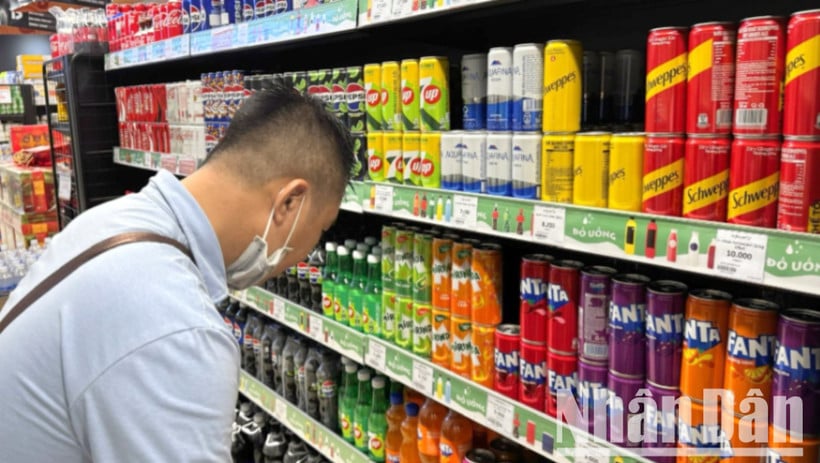








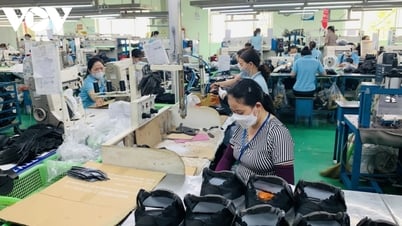



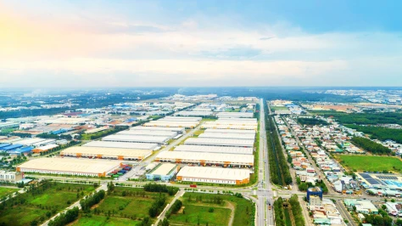















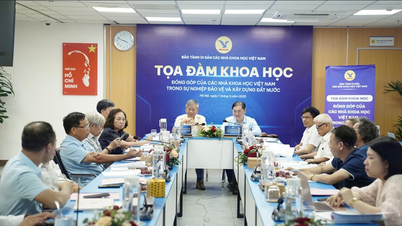












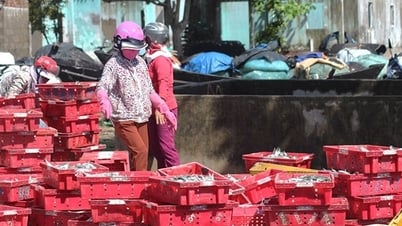










































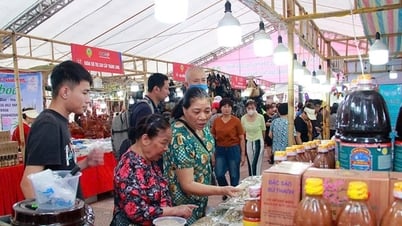






![[OCOP REVIEW] Tu Duyen Syrup - The essence of herbs from the mountains and forests of Nhu Thanh](https://vphoto.vietnam.vn/thumb/402x226/vietnam/resource/IMAGE/2025/6/5/58ca32fce4ec44039e444fbfae7e75ec)





Comment (0)